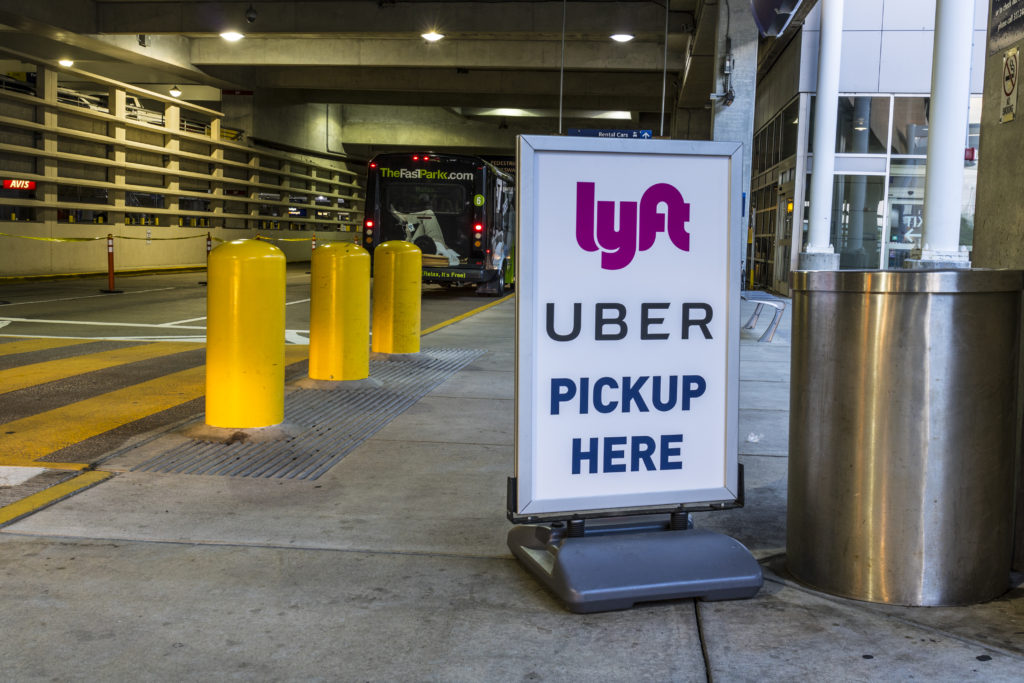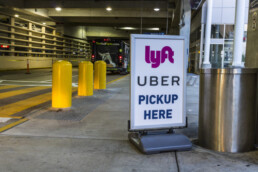Second Division Deems Arbitration Agreements Unconscionable and Executed by Fraud

In a decision recently certified for publication on October 22, 2021, the California Court of Appeals, Second Division, reviewed two versions of arbitration agreements executed between a group of employers and their employees. The decision stems from a class action lawsuit, Yeni Najarro et. al. v. Horizon Personnel Services Inc. et. al., wherein the employees filed eighteen employment related claims against their employers. The employers attempted to hide behind the different versions of arbitration agreements and compel the employees to dispute their claims before an arbitrator which would have prevented the employees from filing a lawsuit in court.
However, the Appellate Court determined that the arbitration agreements were unenforceable as the employee's consent to arbitration was secured by unconscionable terms and fraud in the execution of the agreements. This post will briefly highlight the big picture points of the Appellate Court's decision, and demonstrate how employees can overcome unfair arbitration agreements provided by their employers.
Arbitration Agreement Impact on Employees
We have written before the employers prefer arbitration for various reasons, but arbitration agreements may have a negative impact on employees and disadvantages employees after signing arbitration agreements. It is important to remember that there is an inherent imbalance of bargaining power at the time of hiring - with employers tending to hold all the power over employees. Many employers use this advantage by including arbitration clauses that deprive employees of their right to have their day in court - which was the situation in the Najarro case - and restrict employees in many other ways. The Srourian Law Firm and its attorneys have experience overcoming unfair arbitration agreements and securing employee's employment rights to have their day in court.
What makes an Arbitration Agreement Unconscionable?
In the Najarro class action lawsuit, although there was an arbitration agreement between the employers and employees which delegated power to an arbitrator to preside over and resolve disputes between employers and individual employees, the courts typically have the power to review all agreements or contracts for enforceability.
Unconscionability is one argument employees may raise to have an unfair agreement deemed unenforceable. In California, unconscionability is referred to as the absence of meaningful choice on the part of one party to a contract, and the contract terms unreasonably favor the other party involved in the contract. Unconscionability can be procedural - meaning that during the negotiation process one party may be oppressed or surprised due to having unequal bargaining power. Unconscionability can also be substantive - meaning the substance of the terms will result in overly harsh results to one party and one-sided favorable results to another party.
Applying the doctrine of unconscionability, the Second Division determined that one version of the arbitration agreement was unfair to employees, and therefore unenforceable, because the arbitration agreement (1) forced employee's to waive their right to file a class action lawsuit for employment related claims, (2) the employers did not countersign the agreement, which is required to demonstrate mutual intent to enter into an agreement, and (3) the employees were not provided a meaningful opportunity to negotiate the terms of the arbitration agreement with their employers. Here, the employees were pressured into signing arbitration agreements that took away their power to file a class action lawsuit in court. Underlying the lawsuit was the fact that the employees had difficulty understanding and speaking the English language which the court later addressed in its discussion of fraud in the execution of agreements.
What is Fraud in the Execution?
One key aspect of the Second Division's ruling in Najarro is the court's discussion of fraud in the execution of arbitration agreements and the implications it may have for employees that speak and or read English as a second, or maybe even third or fourth language. In California, a claim for fraud in the execution is not subject to arbitration where the facts can demonstrate that there was not mutual assent between employer and employee to enter into an agreement. Fraud in the execution of an agreement occurs when an employee signs an agreement but is deceived by the employer as to the nature of the agreement; and, the employee does not fully grasp the terms that he or she is agreeing to. In the event that this happens, the court will review the facts underlying the lawsuit in relation to the contract terms to determine whether or not the agreement is void or unenforceable.
In the Najarro lawsuit, the employees were not proficient at reading Spanish and English, nor were they proficient at speaking English. Additionally, the employers - taking advantage of the obvious language barrier - merely handed the arbitration agreements to the employees and referred to the agreement as being "unimportant". Moreover the employers took advantage of the employees by pressuring them to essentially "take it or leave it" when it came to accepting the offer for employment. The employers conditioned the employees employment on on whether or not the employees signed the arbitration agreement.
Basically, the employees were compelled by the employers to sign the arbitration agreement if they wanted to be employed. The employees were not given a reasonable opportunity to read the arbitration agreements or at least have an attorney interpret the agreement for them so that they could understand exactly what they were agreeing to, and what employment rights were being waived. When a situation like this happens, as was the case in Najarro, the court is likely to deem an agreement void or unenforceable because there is no clear intent or mutual assent that the disadvantaged party - here it was non-English speaking employees that also struggled to read Spanish and English - to mutually enter into an arbitration agreement waving vital employment rights.
Each case will depend on the specific facts, so it is important to consult with an experienced labor law attorney to assess the specifics of your case to determine if your employment rights are being violated by an unconscionable arbitration agreement.
Free Consultation
Srourian Law Firm, with locations in Los Angeles, Westwood, Woodland Hills, and Orange County is experienced in all aspects of employment law including arbitration agreements and filing class action lawsuits, and have aggressively represented employees in Los Angeles, Hollywood, Santa Monica, Orange, Irvine, Anaheim, Santa Ana, Newport Beach, Costa Mesa, Fullerton, Tustin, Mission Viejo, San Clemente, Garden Grove, Laguna Niguel, Brea, Fountain Valley, Aliso Viejo, Yorba Linda, Westminster, Laguna Hills, Cypress, and La Habra.
If you or someone you know suffered employment violations, you may have certain employee rights under state and federal law, and may be entitled to compensation as a part of a class action lawsuit. Please contact us to speak with one of our lawyers for a free consultation.
California Protects Warehouse Employees Against Unfair Labor Practices

The on-going feud between state governments and big tech companies intensified on September 22, 2021 when California Governor Gavin Newsom signed California Assembly Bill 701 (A.B. 701), making California the first state to impose regulations on companies that require warehouse distribution center employees to meet unfair productivity quotas. A.B. 701 - the Warehouse Distribution Centers Bill - amends the California Labor Code to include new provisions taking aim at companies like Amazon that implement unfair labor practices that exploit employees in order to fulfill delivery orders. A.B. 701 also prevents job seekers from being discriminated against when applying for or pursuing a different job if the job applicant filed to receive worker’s comp benefits during prior employment.
What is A.B. 701?
Generally, the purpose of California Assembly Bill 701 (A.B. 701) is to protect warehouse distribution center employees against impending job loss for failing to meet employer established productivity quotas. The author of the new law, California Assemblywoman Lorena Gonzalez states, “worker’s aren’t machines. We’re not going to allow a corporation that puts profits over worker’s bodies to set labor standards back decades just for same-day delivery.” The new law will protect both current and former workers employed at a warehouse distribution center.
What is a productivity quota?
A.B. 701 defines quota as a work standard under which an employee is assigned or required to perform at the specified productivity speed or perform a quantified number of tasks, or to handle or produce a quantified amount of material, within a defined time period and under which the employee may suffer an adverse employment action if they fail to complete the performance standard.
Essentially, a quota is created by the employer or company of which the employee is responsible to meet. The quota consists of the number of tasks the employee is expected to complete within a certain amount of time. The problem arises when the quota is unfair, yet employees are still expected to perform tasks to complete the quota, and if the employee cannot do so, then the employee may experience an adverse employment action.
What is an adverse employment action?
In California, an adverse employment action is viewed as any type of retaliatory action taken by an employer that is reasonably likely to have a negative effect on an employee’s job performance, opportunities for a promotion, or ability to seek employment elsewhere. The most common examples of an adverse employment action are job loss or termination, reduced wages, and demotion to a lower employment position or job title.
What changes will happen because of A.B. 701?
Currently, companies like Amazon are not held accountable for providing employees with adequate notice of their productivity quotas and the adverse employment actions that may occur for failing to meet those quotas. A.B. 701 requires companies to provide more transparency to warehouse distribution center employees. For example, the bill provides greater protections to warehouse distribution center employees in the following ways:
- Employers must provide adequate notice to every existing and new employee in writing describing each quota the employee is responsible to meet;
- Employers must provide notice to all employees in writing of any adverse employment actions that may result from failing to meet a quota;
- Employees will not be required to meet a quota that violates the employee’s right to meal and rest or break time, including using the bathroom;
- Employers are prohibited from taking any adverse employment action against an employee for not meeting a quota if the quota violates the employee’s right to meal and rest or break time, including using the bathroom;
- Employees must receive productive time credit towards any quota for actions taken by the employee to comply with California’s health and safety laws for the workplace;
- Employees may receive productive time credit towards any quota during meals and rest or break time if the employee is required to be on call during those times;
- Current and former employees have the right to request a written description of each quota and a copy of the most recent 90 days of the employee’s performance towards meeting the quota if the employee believes the company created a quota that violates the employee’s right to meals and rest or break time.
Another key component of the new law is that employees will have the ability to file a lawsuit for injunctive relief to obtain court ordered compliance with the law against employers and companies. Employees that are successful in the lawsuit for injunctive relief may be awarded suspension of the unfair quota, the court may reverse an unlawful termination of the employee for not meeting a quota that violated the employee’s labor rights, the employer and company may be ordered to cover the employee’s costs and attorney’s fees for filing the lawsuit. Each case will depend on the specific facts, so it is important to consult with an experienced labor law attorney to assess the specifics of your case.
A.B. 701 is scheduled to take effect in California on January 1, 2022.
Free Consultation
Srourian Law Firm, with locations in Los Angeles, Westwood, Woodland Hills, and Orange County is experienced in all aspects of employment law including Warehouse Employee related health and safety violations in the workplace, and have aggressively represented employees in Los Angeles, Hollywood, Santa Monica, Orange, Irvine, Anaheim, Santa Ana, Newport Beach, Costa Mesa, Fullerton, Tustin, Mission Viejo, San Clemente, Garden Grove, Laguna Niguel, Brea, Fountain Valley, Aliso Viejo, Yorba Linda, Westminster, Laguna Hills, Cypress, and La Habra.
If you or someone you know suffered employment violations, you may have certain employee rights under state and federal law, and may be entitled to compensation as a part of a class action lawsuit. Please contact us to speak with one of our lawyers for a free consultation.
FAQs on PPP Fraud

Many businesses have benefited from PPP loans during closures due to COVID-19. PPP funds, however, are supposed to benefit employees by providing financial assistance to businesses to maintain payroll, employee benefits and other business expenses. If you are aware of any PPP fraud by your employer, you have an obligation to report the fraud. Moreover, you are protected from any retaliation for reporting any violations.
Q: What is PPP fraud?
A: PPP (Paycheck Protection Program) fraud includes any misuse of funds from the Small Business Administration (SBA) in response to COVID-19. In an effort to provide financial assistance to businesses during the pandemic. Any business that received PPP money, must use the money for specific business expenses such as payroll, employee benefits, rent, interest on mortgages, and utilities. The intent of the PPP was to ensure that businesses could continue to pay employees and cover necessary businesses expenses during mandatory closures.
Unfortunately, there is a growing concern that businesses have been violating the requirements of PPP. This fraudulent behavior has resulted in the money not being used to pay employees as intended. Examples of PPP fraud include falsifying information on PPP applications, providing inaccurate data regarding employees, and misdirecting PPP funds away from payroll.
Q: What happens if I learn my company committed PPP fraud?
A; If you learn that your company has committed PPP fraud, you must report the fraud. However, there are steps you can take to protect your rights. First, you should review any paperwork you signed as a condition of employment. This will include any employment contract, documents signed during orientation and training, as well as any employee handbooks. These documents often include a company policy that employees will act honestly and report fraud. In other words, you could be violating a company policy by not reporting the fraud. Second, you should consult with an experienced labor law attorney who can not only advise you of the legal issues, but more importantly, will protect your rights.
A: Can my company fire me for reporting PPP fraud?
A: No. If you report PPP fraud, you are protected by federal and state laws as a whistleblower. Any punitive action taken by an employer against an employee for reporting PPP fraud (or any violation of a law or regulation) is specifically protected under laws against whistleblower retaliation. In addition to federal protection, California has very strong labor laws that protect whistleblowers. Specifically, California Labor Code section 1102,5 (in part) states:
An employer, or any person acting on behalf of the employer, shall not retaliate against an employee for disclosing information, or because the employer believes that the employee disclosed or may disclose information.
The broad protection under California law not only protects whistleblowers from retaliation, but also protects an employee who are believed to be a whistleblower by the company. Other forms of retaliation that are prohibited by law include threats, demotions, reduced hours or pay, blacklisting or denying a promotion that is merited.
Q: Can I sue my company if they retaliate against me for reporting PPP fraud?
A: Yes. If you report PPP fraud by your company, and are the victim of retaliation because of the report, you have a right to sue under federal and state law. Moreover, the company can also face significant civil penalties. An experienced labor law attorney can review your case and help you decide what course of action is best. More importantly, consulting with an attorney will protect your rights as an employee and possible whistleblower.
FREE CONSULTATION
Srourian Law Firm, with locations in Los Angeles, Westwood, Woodland Hills, and Orange County is experienced in all aspects of employment law including PPP fraud and whistleblower retaliation, and have aggressively represented employees in Los Angeles, Hollywood, Santa Monica, Orange, Irvine, Anaheim, Santa Ana, Newport Beach, Costa Mesa, Fullerton, Tustin, Mission Viejo, San Clemente, Garden Grove, Laguna Niguel, Brea, Fountain Valley, Aliso Viejo, Yorba Linda, Westminster, Laguna Hills, Cypress, and La Habra.
If you or someone you know suffered employment violations due to PPP fraud or whistleblower retaliation, you may have certain employee rights under state and federal law, and may be entitled to compensation as a part of the class action lawsuit. Please contact us to speak with one of our lawyers for a free consultation.
Big Win in PA Court Case May Have Big Impact
A recent Pennsylvania Supreme Court decision may be a big win for all drivers who work for ride-hailing companies like Uber and Lyft. On July 27, 2020, the highest court in Pennsylvania held that a part-time Uber driver was not “self-employed,” The designation is significant because Uber has consistently argued in lawsuits across the country that drivers are independent contractors and self-employed, not employees.
By categorizing the estimated 2.6 million Uber drivers in the U.S. as being self-employed, Uber is not required to provide any federal or state benefits. In this case, however, the sole issue was whether his part-time work with Uber disqualified him from unemployment benefits because an applicant who engages in an independent business venture is not eligible for unemployment benefits. While the decision is not binding on other states, it could be a significant victory for all ride-hailing drivers as well as gig workers more broadly.

The case in Pennsylvania involves a laid-off behavioral specialist who started working for Uber part-time. The driver, however, was denied unemployment benefits because his part-time work with Uber was categorized as an “independent business venture.” The court, however, ruled that the driver was not self-employed because Uber had “significant control” over his work, and therefore eligible for unemployment benefits due to losing his full-time job as a behavioral specialist. The court acknowledged that drivers do have some autonomy such as setting work hours and rejecting rides, but overall, the court found that there were more significant aspects of the contract that Uber controlled. For example, Uber sets the rate for services, drivers cannot establish work relationships with passengers, and drivers cannot subcontract their work.
While the decision is good news for drivers, the court stopped short of saying the decision should be applied broadly because “individual decisions must be made in specific cases based upon the unique facts presented in each circumstance.” Similarly, the court did not hold that the driver was an “employee” of Uber, which is the question at the core of lawsuits across the country.
Currently, under federal and state laws, independent contractors are generally not eligible for certain employee benefits such as overtime pay, meal/rest breaks, and paid sick time. While that question remains unsettled, litigation is pending in California and around the world and millions of drivers wait anxiously for a favorable decision that would provide them with the benefits and protection they deserve under federal and state law.
FREE CONSULTATION
Srourian Law Firm, with locations in Los Angeles, Westwood, Woodland Hills, and Orange County is experienced in all aspects of employment law including the representation of ride-hailing drivers and have aggressively represented employees in Los Angeles, Hollywood, Santa Monica, Orange, Irvine, Anaheim, Santa Ana, Newport Beach, Costa Mesa, Fullerton, Tustin, Mission Viejo, San Clemente, Garden Grove, Laguna Niguel, Brea, Fountain Valley, Aliso Viejo, Yorba Linda, Westminster, Laguna Hills, Cypress, and La Habra.
If you or someone you know suffered employment violations as a ride-hailing driver, you may have certain employee rights under state and federal law, and may be entitled to compensation as a part of the class action lawsuit. Please contact us to speak with one of our lawyers for a free consultation.
Federal Government Clarifies CARES Act Eligibility

As the country continues to struggle with the challenges due to COVID-19, labor laws have been adapting to the pandemic, and employees must be aware of their rights. One area that has been significantly impacted by COVID-19 is the laws regarding unemployment benefits. The federal and state laws that govern unemployment benefits have always been complicated, and are especially difficult to understand now with the Coronavirus Aid, Relief, and Economic Security Act (CARES) that was enacted in March 2020. CARES expanded weekly unemployment benefits by as much as $600 a week to eligible workers and have proven to be vital to many families during the pandemic. While there have been a myriad of issues and concerns regarding CARES, there is no denying that to many unemployed workers relied on the additional funds as the nation’s unemployment rate sky-rocketed. Moreover, many states were overwhelmed with the volume of applications, and benefits were delayed.
While it is uncertain whether the CARES Act will be extended, the federal government provided some clarification on July 22, 2020. For example, a worker may refuse to accept a job offer because the job is unsafe and continue to collect the additional financial benefits provided under CARES. The states, however, will determine what is considered to be safe work conditions, and if a state determines the job or work conditions are not “suitable,” then the worker may receive the expanded unemployment benefits under CARES. Most states already had suitable work place provisions in place prior to COVID-19, and the general criteria is whether the work unreasonably exposes the worker to unsuitable safety risks. Labor laws have always guaranteed a safe work environment, which is particularly important during a pandemic. Notably, a worker cannot refuse a job offer and seek expanded unemployment benefits due to a general fear of COVID-19.
According to the U.S. Department of Labor, the state may also determine that a job is unsuitable if a worker refuses the job due to virus-related reasons such as increased risk of COVID-19 due to an underlying medical condition. The state may also determine a job is unsuitable if a worker claims “good cause,” although the federal government has not specifically defined what is considered to be “good cause” which means that states must decide that issue. Fortunately, workers in California benefit from some of the country’s strongest state labor law protections, and this is one example of how an experienced labor law attorney will be able to argue your case by understanding state laws to protect your rights when federal law is not clear.
The federal government also clarified that some out-of-work employees are not eligible for CARES benefits depending on what caused the loss of the job. For example, if a worker is unemployed due to a reason not related to COVID-19, that worker is not eligible for expanded benefits even if jobs are not available due to COVID-19 related circumstances. The reason for this is because CARES was enacted to assist workers who faced unemployment specifically due to the pandemic, and is not broad enough to include workers who did not lose their jobs due to reasons unrelated to COVID-19. Fortunately, those workers may still be eligible for regular unemployment benefits.
Prior to COVID-19, workers who quit their jobs without “good cause” were generally not eligible for unemployment benefits. However, under the CARES Act, certain reasons related to COVID-19 would allow a worker to qualify for expanded unemployment benefits under CARES. For example, a worker who quits a job because of mandatory quarantine, or the need to provide care to a family member with COVID-19 could be considered “good cause” for the purposes of CARES benefits.
While the federal government continues to debate whether to extend benefits under the CARES Act or perhaps craft new legislation, the states may decide to adopt new policies regarding eligibility in the meantime. However, since unemployment benefits are a hybrid of federal and state law, the states must adhere to federal law and provide at least the minimum benefits afforded under federal laws. Also, as more states work towards re-opening and more businesses are hiring, states may become stricter in determining eligibility for unemployment benefits. As we have learned, during a pandemic, it is important to be informed and be ready to take full advantage of any benefits you are eligible for. Plan ahead and consult an experienced labor law attorney so you will have an advocate that will not only understand the quickly changing laws and benefits, but will be able to guide you and protect your rights during these uncertain times.
FREE CONSULTATION
Srourian Law Firm, with locations in Los Angeles, Westwood, Woodland Hills, and Orange County is experienced in all aspects of employment law including unemployment benefits and have aggressively represented employees in Los Angeles, Hollywood, Santa Monica, Orange, Irvine, Anaheim, Santa Ana, Newport Beach, Costa Mesa, Fullerton, Tustin, Mission Viejo, San Clemente, Garden Grove, Laguna Niguel, Brea, Fountain Valley, Aliso Viejo, Yorba Linda, Westminster, Laguna Hills, Cypress, and La Habra.
If you or someone you know suffered employment violations involving unemployment benefits, you may have certain employee rights under state and federal law, and may be entitled to compensation as a part of the class action lawsuit. Please contact us to speak with one of our lawyers for a free consultation.
Reasonable Accommodations Required During COVID-19

As the country continues to combat COVID-19, employees must be aware of their rights and ensure that their employees comply with all federal, state and local labor laws including the American with Disabilities Act (ADA). Under the ADA, federal law requires employees provide reasonable accommodations for disabilities covered under the act. However, according to the U.S. Equal Employment Opportunity Commission (EEOC), the most common complaint being filed by employees during the pandemic is employers failing to accommodate their disabilities.
The ADA has specific provisions regarding accommodations that employers must provide to employees with disabilities regardless of the extenuating circumstances due to COVID-19. Generally, the ADA requires employees to modify an employee’s job or work environment in order to ensure an employee with a disability is able perform the essential functions of their job. According to the law, the employer must make all “reasonable accommodations” as long as there is no “undue hardship.” As with many statutes, the legal definitions may not be obvious, so you should consult an experienced employment law attorney to explain the law and your rights.
The protections under the California state equivalent to the ADA are found in the California Fair Employment and Housing Act (FEHA). The FEHA protects employees with a physical or mental disability and requires employers provide reasonable accommodations such as changing work schedules, relocating the work area, modifying job duties and providing leave for medical care.
With the additional health and safety concerns due to COVID-19, all employees, particularly employees with disabilities must ensure their rights are not being violated. For example, some employees may have an underlying condition that creates a greater risk for COVID-19. Under both federal and state labor laws, the employee is entitled to reasonable accommodations to ensure their safety in the workplace if the risk is directly related to the disability.
The added health risks due to COVID-19 have impacted many aspects of labor law and the workplace, particularly if an employee has an existing qualified disability under the ADA or FEHA. Federal and state labor laws offer a wide range of protection besides accommodations. For example, all medical information of employees, related to a disability or COVID-19, must be confidential. Moreover, the ADA and FEHA provides protections to prospective employees and require hiring policies that provide equal opportunities to applicants regardless of any disability. Again, the employer must provide a reasonable accommodation to an applicant as long as it would not create an undue hardship.
If you believe your employee is violating your rights as an employee under the ADA or FEHA, you should consult an experienced employment law attorney to discuss your case and options.
FREE CONSULTATION
Srourian Law Firm, with locations in Los Angeles, Westwood, Woodland Hills, and Orange County is experienced in all aspects of employment law including ADA and FEHA violations and have aggressively represented employees in Los Angeles, Hollywood, Santa Monica, Orange, Irvine, Anaheim, Santa Ana, Newport Beach, Costa Mesa, Fullerton, Tustin, Mission Viejo, San Clemente, Garden Grove, Laguna Niguel, Brea, Fountain Valley, Aliso Viejo, Yorba Linda, Westminster, Laguna Hills, Cypress, and La Habra.
If you or someone you know suffered employment violations as an employee including ADA or FEHA violations, you may have certain employee rights under state and federal law, and may be entitled to compensation as a part of the class action lawsuit. Please contact us to speak with one of our lawyers for a free consultation.
FAQs on Productivity Quotas: Are they Legal?

Losing your job is always difficult, particularly when you have worked very hard to be a good employee. Recently, some large corporations have been criticized for having unrealistic expectations regarding employee performance, and have fired employees for failing to be sufficiently productive at work. Here are some frequently asked questions that you may find helpful if you have been fired for failing to meet productivity quotas:
What are productivity quotas?
Productivity quotas are efficiency standards that an employer sets for employees. In other words, the employee is required to meet certain goals at work. Job performance and employee evaluations can be based on whether they meet productivity goals. For example, in a manufacturing plant, the productivity quota could require an employee to assemble "X" number of units per hour. Another example of a productivity quote would be for a delivery person to deliver "X" number of packages per shift. Failure to meet these goals would result in a poor performance evaluation.
Productivity quotes are often unilaterally established by employers, and employees have little or no input on what the productivity quotas are or whether they are realistic. As a result, employees feel tremendous pressure and stress to meet these goals to avoid a bad evaluation and possibly termination.
Are productivity quotas against the law?
No. Unfortunately, for the most part, productivity quotas are not against the law because employers have the right to evaluate the efficiency of employees. However, there are many local, state and federal laws that protect employees and productivity quotas do play a role in the larger question of whether an employee is the victim of an unlawful termination. For example, an employee may have a disability that is protected under the Americans with Disabilities Act which requires employers to provide a reasonable accommodation which may include an adjustment to any existing productivity quotas.
Also, failing to meet productivity quotes cannot be a pretext for an unlawful termination based on age, race, disability or protected activities including collective bargaining and whistleblowing. Other factors that must be considered with productivity quotas is whether employees are forced to forgo lawful meal and rest breaks in order to meet goals. In other words, employees are entitled to breaks under the law which includes proper compensation for tasks like clocking in or changing in to uniform. Employers are not allowed to penalize employees by setting productivity goals that encourage or require employees to work through breaks or not receive proper compensation. If you have been fired for failing to meet productivity goals, you should consult with an experienced labor attorney to determine whether the termination was lawful.
Can I be fired for failing to meet productivity quotas?
There is no simple answer to whether you can be legally fired for failing to meet productivity goals. Employers should have several ways to evaluate employee performance, and productivity goals should be one of many factors. However, all employment terminations must be lawful. In other words, if the only factor that leads to losing your job is failure to meet productivity quotas, there may be grounds to challenge that decision. For example, federal labor law requires a safe and secure workplace that is free of hazards. Therefore, employers cannot create a situation where the workplace is hazardous due to productivity quotas that would require employees to sacrifice safety in order to reach the goals out of fear of being fired.
California law offers even stronger protections for employees and requires every employer to have an injury and illness prevention program which must include safety training and safe work practices. Moreover, according to California Labor Code section 6401, employers must “adopt and use practices, means, methods, operations, and processes which are reasonably adequate to render such employment and place of employment safe and healthful.” Therefore, unrealistic productivity quotas could threaten the safety and health of employees which employers are required by law to protect. Labor law is complex and whether your have a cause of action depends on the specific facts. You should consult an experienced labor attorney to discuss your case if you have been terminated.
Is California an “at-will” employment state? What does that mean?
Yes. California is an “at-will” state which generally means an employer may fire an employee at any time for any reason without “good cause.” Good cause means a reason for an employer to fire an employee such as insubordination or dishonesty. Therefore, as an at-will employment state, employers in California do not have to have good cause to fire an employee. However, the employee may not be fired for an illegal purpose or in violation of the employee’s rights.
All employees have rights, and employees in California benefit from some of the country’s strongest protections. So, even though California is an at-will state, which seems to allow an employer to fire an employee for any reason whatsoever, including failure to meet productivity quotas, the reality of labor law is much more complex. In most cases, you will need the advice of an experienced labor attorney to assess your case and file a lawsuit if you have been the victim of an unlawful termination.
FREE CONSULTATION
Srourian Law Firm, with locations in Los Angeles, Westwood, Woodland Hills, and Orange County is experienced in all aspects of employment law including termination based on productivity quotas and have aggressively represented employees in Los Angeles, Hollywood, Santa Monica, Orange, Irvine, Anaheim, Santa Ana, Newport Beach, Costa Mesa, Fullerton, Tustin, Mission Viejo, San Clemente, Garden Grove, Laguna Niguel, Brea, Fountain Valley, Aliso Viejo, Yorba Linda, Westminster, Laguna Hills, Cypress, and La Habra.
If you or someone you know suffered employment violations as an employee including termination based on productivity quotas, you may have certain employee rights under state and federal law and may be entitled to overtime wages, meal breaks and rest breaks; as well as compensation as a part of the class action lawsuit. Please contact us to speak with one of our lawyers for a free consultation.
Cannabis Workers Protected under Federal Employment Law
According to a recent decision by the U.S. Court of Appeals for the Tenth Circuit, employees in the cannabis industry are protected under the Federal Labor Standards Act (FLSA) even though the sale of marijuana is prohibited under federal law.
In the case, Kenney v. Helix TCS, the lead plaintiff, security guard Robert Kenney, filed a suit against his former employer, Helix TCS, Inc., a service provider to the legal (state-sanctioned) cannabis industry. Kenney is seeking unpaid overtime pay, damages and costs on behalf of all similarly situation security guards and site supervisors.
Workers in the Cannabis Industry May Be Entitled to Overtime Pay
In the complaint, Kenney alleges that Helix misclassified all security guards as exempt employees. and failed to pay overtime required under the FLSA. In an unsuccessful motion to dismiss, defendant Helix maintains that the FLSA applies only to legal businesses, and the sale of recreational marijuana violates federal law. In essence, despite Colorado law allowing the sale of recreational marijuana, Helix argues that due to the federal Controlled Substances Act (CSA), Kenney, and all Helix employees, are essentially engaging in illegal “drug trafficking” and therefore not protected under the FLSA.
The appellate court affirmed the denial of defendant’s motion to dismiss and held that “employers are not excused from complying with federal laws just because their business practices are federally prohibited.” Moreover, the clear intent of the FLSA is to protect the workers’ well-being, and not to regulate potential illegal activities. Similarly, marijuana workers are not specifically exempt from the FLSA nor does the CSA repeal the protection guaranteed under the FLSA for workers in the cannabis industry. On the contrary, the FLSA has been amended to exclude certain categories of employees in response to the CSA, and has refused to exclude cannabis workers from protection under the FLSA.
The Definition of “Employee” Is Very Broad Under the FLSA
Notably, the U.S. Supreme Court has recognized the “striking breadth” of the definition of employee under the FLSA and purposefully expansive scope designed to maximize the full reach of the Act. As more states legalize the sale of recreational marijuana, this case serves as a reminder that workers in the cannabis industry are protected under the FLSA despite the CSA. Moreover, this is one example of how federal law will not trump a more permissive state law and allow employers in the cannabis industry to deny protections afforded under the FLSA.
California Marijuana Workers and Employee Rights under Federal and State Laws
The California courts have yet to decide the issue of cannabis industry workers and their employee rights under the FLSA. As the courts consider this issue, marijuana workers should be aware of their rights under the California Labor Code and the FLSA. In most cases, workers in the cannabis industry are protected and have employment rights including overtime wages, meal and rest breaks, and protection from missing wages or late paychecks.

FREE CONSULTATION
Srourian Law Firm, with locations in Los Angeles, Westwood, Woodland Hills, and Orange County is experienced in all aspects of employment law including wage and overtime pay and have aggressively represented employees in Los Angeles, Hollywood, Santa Monica, Orange, Irvine, Anaheim, Santa Ana, Newport Beach, Costa Mesa, Fullerton, Tustin, Mission Viejo, San Clemente, Garden Grove, Laguna Niguel, Brea, Fountain Valley, Aliso Viejo, Yorba Linda, Westminster, Laguna Hills, Cypress, and La Habra.
If you or someone you know suffered employment violations as an employee in the cannabis industry in California, you may have certain employee rights under state and federal law. Marijuana workers may be entitled to overtime wages, meal breaks and rest breaks; and may be entitled to compensation as a part of the class action lawsuit. Please contact us to speak with one of our lawyers for a free consultation.
FAQs on Whistleblowers
Reporting your company or supervisor for violating the law can be frightening. However, reporting workplace violations are important to ensure the rights of all employees, and in some cases protect the health and safety of employees, the public and the environment. Fortunately, federal and state laws protect employees who report violations.
Q: What is a whistleblower?
The term “whistleblower” is used to describe an employee who reports an employer for violating the law. The violation could be an illegal act taken by the employer against the whistleblower, or a general violation with a wider impact. For example, an employee who reports an incident of sexual harassment at work would be a whistleblower. Similarly, an employee who reports an employer for violating pollution laws would also be a whistleblower.
Q: Are whistleblowers protected?
Yes. There are many federal and state laws enacted specifically to protect whistleblowers. In addition to protection from retaliation, whistleblowers can also file a lawsuit against the employer if there is retaliation for reporting the violation of the law. In other words, an employee cannot retaliate (or punish) an employee for being a whistleblower.
Federal law protection for whistleblowers require a “good-faith” belief that a violation of the law occurred. Like many legal terms, it is difficult to define “good-faith,” but courts have generally held that a good-faith belief be a combination of the whistleblower’s subjective opinion as well as an objective basis for the violation. An experienced labor law attorney can discuss the facts of your case and advise you on how to proceed with an allegation against your employer and ensure that your rights are protected under Federal law.
Whistleblowers are also protected under state law, and California labor laws provide significant protection to employees, and are considered among the strongest in the country. For example, under the California Labor Code, an employer cannot retaliate against a whistleblower if the employee “reasonably” believes a violation has occurred which is considered a lower burden than the federal law requiring a good faith belief. Moreover, the California whistleblower is protected even if the employer is cleared of any wrong-doing.

Q: What is considered whistleblower retaliation?
A: Whistleblower retaliation includes a variety of actions such as:
• wrongful termination;
• demotion;
• failure to promote when promotion is merited;
• denying opportunity for training or professional development;
• blacklisting;
• reducing pay or hours;
• reassignment to less desirable task;
• intimidation;
• denying access to resources necessary to perform work duties; and
• making any threat including a threat to report non-citizen employee to ICE or immigration.
Under California law, an employee is protected from workplace retaliation even if the employee did not actually make a whistleblowing report. In other words, employers cannot retaliate against an employee because they believe the employee is a whistleblower.
Q: What can I do if my employer retaliates against me for being a whistleblower?
A: If you believe you are the victim of unlawful labor practices, or that your employer is violating the law or regulations, you have the right to file a complaint without fear of retaliation. For example, if you are the victim of sexual harassment, you have the legal right to file a formal complaint against your employer through the regular channels proscribed in the employee handbook or your employment contract. Similarly, if the wrongful action by your employer is a workplace safety violation or an environmental violation, you have the right to file a complaint to an appropriate governmental agency such as OSHA (Occupational Safety and Health Administration) or the EPA (Environmental Protection Agency) and not fear retaliation.
After reporting the violation, an investigation should be conducted, and your rights as a whistleblower protect you from workplace retaliation. However, if your employer does retaliate, you can file a lawsuit against your employer for whistleblower retaliation. If you prevail, you may be entitled to compensation for lost wages and benefits, physical pain, mental suffering, loss of career opportunities, punitive damages, legal costs and attorney’s fees.
There are strict deadlines on retaliation claims, so be sure to act promptly after the retaliation and speak to an experienced labor law attorney to ensure your rights are protected.
FREE CONSULTATION
Srourian Law Firm, with locations in Los Angeles, Westwood, Woodland Hills, and Orange County is experienced in all aspects of employment law including whistleblower retaliation, and have aggressively represented employees in Los Angeles, Hollywood, Santa Monica, Orange, Irvine, Anaheim, Santa Ana, Newport Beach, Costa Mesa, Fullerton, Tustin, Mission Viejo, San Clemente, Garden Grove, Laguna Niguel, Brea, Fountain Valley, Aliso Viejo, Yorba Linda, Westminster, Laguna Hills, Cypress, and La Habra.
If you or someone you know suffered employment violations due to whistleblower retliation, you may have certain employee rights under state and federal law, and may be entitled to compensation as a part of the class action lawsuit. Please contact us to speak with one of our lawyers for a free consultation.
Know the Law. Know your rights.

What is the ADA?
The American with Disabilities Act (ADA) is a federal civil rights statute enacted in 1990 that protects individuals with disabilities in all areas of public life including employment. The purpose of the ADA is to ensure that people with disabilities have equal rights and is similar to the civil rights granted to individuals based on race, color, sex, national origin, age and religion. Like any statute, there will be amendments and case law that may change the scope of the ADA, so it is important to consult with an experienced labor law attorney if you believe your employer has violated your rights under the ADA or any labor law.
What is a disability under the ADA?
According to the ADA, a disability is defined as “a person who has a physical or mental impairment that substantially limits one or more major life activities” and includes “a person who has a history or record of such an impairment, or a person who is perceived by others as having such an impairment.” The ADA does not provide a specific list of impairments that are covered, but courts have generally defined “disability” broadly.
Interestingly, the ADA also protects persons who “have a relationship with an individual with a disability.” Specifically, this has been interpreted to mean that an employer may not assume that an employee who has a relationship with a person with a disability would negatively affect job performance. For example, if an applicant for employment is married to a person with a disability, the prospective employer may not assume that the applicant would request excessive absences from work to care for the spouse and reject the applicant based solely on that assumption.
Also, the ADA only protects disabilities that are “known” to the employer. In other words, unless the employer is aware of the disability or because the employee has requested a reasonable accommodation.
How does the ADA protect employees?
The protections under the ADA are broad and include both employees, and qualified applicants for employment. Under the ADA, a “qualified individual with a disability” includes a person that “meets legitimate skill, experience, education, or other requirements of an employment position” and who is capable to perform the “essential” job functions of a job they currently hold or seek with or without a “reasonable accommodation.” In other words, if a applicant or employee is qualified to perform the essential aspects of the job except for limitations due to a disability, the employer cannot reject the applicant or terminate the employee without first considering whether a “reasonable accommodation” could be enacted to allow the individual with a disability to perform the essential tasks.
A “reasonable accommodation” is a “modification or an adjustment to a job or the work environment that will enable a qualified applicant or employee” to perform the essential tasks required for the job. For example, if an applicant is qualified for a job, except the applicant uses a wheelchair and is unable to climb a ladder to reach the top shelf where supplies are stored, the employer may not reject the applicant solely on that basis. Instead, the employer must first consider how to modify the workplace so that the applicant would be able to complete tasks without having to climb a ladder, which is not possible due to the person’s disability. If the accommodation is reasonable, and the employee is otherwise qualified, the employer must make the accommodation in order to comply with the ADA.
The range of reasonable accommodations vary from modifications to existing workplaces such as wheelchair ramps, modifying work schedules, modifying equipment, providing a reader or interpreter, or adapting training programs. The ADA does not, however, give preferential treatment to individuals with disabilities nor does the ADA require the employer to assign an individual with disabilities to a job that the person is not qualified to do.
Employers are also not required to provide a reasonable accommodation if it would impose an “undue hardship” on the business. An undue hardship is defined as “an action requiring significant difficulty or expense” when compared to several factors such as nature and cost of the accommodation, resources required, and the size and structure of the business. In general, courts have required larger companies to make more accommodations that may be expensive than a smaller company.
Does the ADA protect California employees with disabilities?
Yes. The ADA is a federal law that protects all employees with disabilities in the U.S. However, California boasts some of the strongest protections for employees in the country, and a California state version of the ADA is part of the Fair Employment and Housing Act of 1959 (FEHA). While both the ADA and FEHA protect disabled individuals from job discrimination, FEHA is broader than the ADA and provides greater protection. For example, under the ADA, the protection extends to persons that will be substantially limited by a disability, while the FEHA includes any “limitation” rather than requiring a “substantial” limitation. The result is that FEHA offers broader protection than the ADA.
What should I do if I feel my rights have been violated under the ADA or FEHA?
If you are a person with a disability and you believe your rights have been violated as either an applicant or employee, you should contact an experienced labor law attorney to discuss your case. Both the ADA and FEHA are complicated, and you need legal assistance to ensure your rights are protected. Also, an experienced labor law attorney can help you determine whether to file a complaint and what information you need to proceed. More importantly, an experienced labor law attorney can advocate for you and file a lawsuit for damages if appropriate. You may also be part of a class action suit with other similarly situated employees.
FREE CONSULTATION
Srourian Law Firm, with locations in Los Angeles, Westwood, Woodland Hills, and Orange County is experienced in all aspects of employment law including ADA and FEHA violations and have aggressively represented employees in Los Angeles, Hollywood, Santa Monica, Orange, Irvine, Anaheim, Santa Ana, Newport Beach, Costa Mesa, Fullerton, Tustin, Mission Viejo, San Clemente, Garden Grove, Laguna Niguel, Brea, Fountain Valley, Aliso Viejo, Yorba Linda, Westminster, Laguna Hills, Cypress, and La Habra.
If you or someone you know suffered employment violations as an employee due to violations of the ADA or FEHA, you have certain employee rights under state and federal law, and may be entitled to compensation as a part of the class action lawsuit. Please contact us to speak with one of our lawyers for a free consultation.










